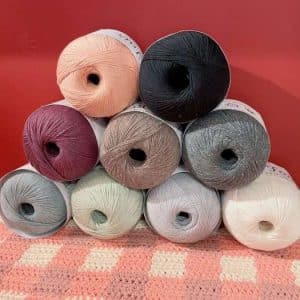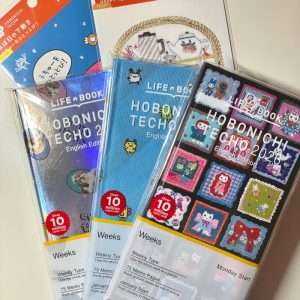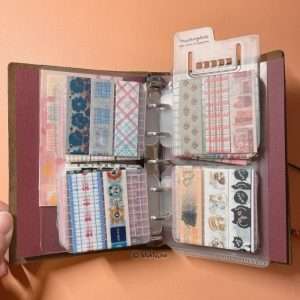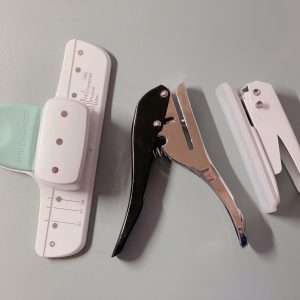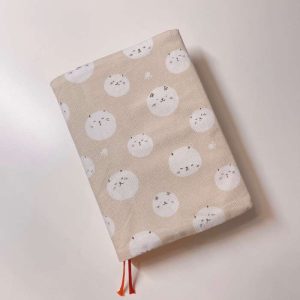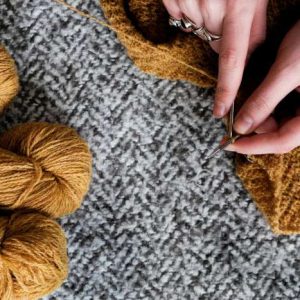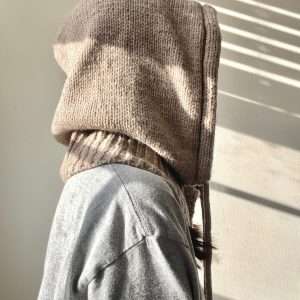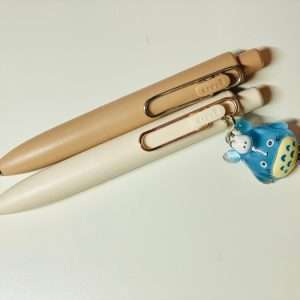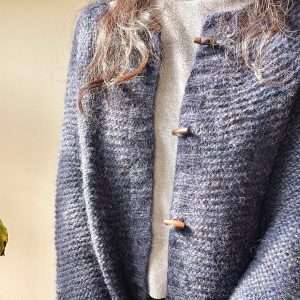JHIA Knitting Certification: Is It Right for You?
I first looked into the Japan Handicraft Instructors Association (JHIA) Knitting Certification after struggling to teach myself crochet through YouTube. When I started knitting—especially with garments in mind—I wanted a more structured way to build my skills. Many of the patterns I admired were from Japanese designers, so learning their techniques felt like the right step.
Often referred to as the “Vogue Certification” due to its affiliation with Nihon Vogue, the JHIA program is one of Japan’s most respected knitting certifications. It offers a clear path from basic to professional-level skills. Here’s a look at what the program includes—and whether it’s the right fit for your goals.
Table of Contents
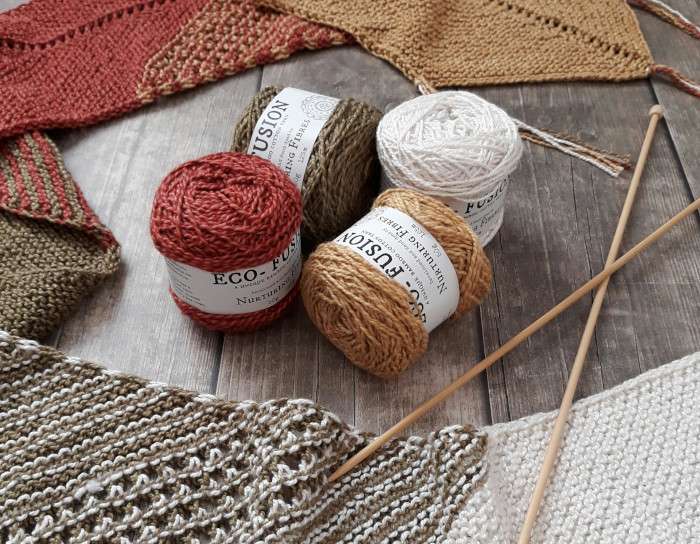
What is the JHIA Knitting Certification?
I looked into the program by visiting the official JHIA website to understand what it actually offers. The JHIA Knitting Certification is a multi-level program that builds comprehensive knitting skills through a series of carefully designed projects and assessments. Each level teaches and tests specific techniques, guiding students from basics to advanced skills. Certified instructors review each project to provide feedback and ensure that you meet the high standards required for each level. By completing the program, you not only gain professional recognition but also validate your skills as a knitter at each stage.
Levels of the JHIA Knitting Certification Program
The JHIA knitting certification program consists of three main levels, each adding to the skills of the previous level. Let’s break down what each level entails and the skills you will acquire.
入門科 (Introduction Course): Building Essential Skills
The Introduction Course covers the foundational techniques of knitting, including casting on, binding off, and mastering the basic knit and purl stitches. These core skills form the basis for all knitting projects. You will also learn to read simple patterns, which is a key skill for following more complex designs in later levels. Small projects—like simple scarves, washcloths, or coasters—allow you to apply what you learn in practical ways. Most students complete this introductory course in approximately six months, although the pace is flexible.
講師科 (Instructor Course): Intermediate Techniques and Instructional Basics
The Instructor Course introduces intermediate-level techniques. You’ll learn more complex stitches, work with pattern modifications, and develop shaping skills to create items with structure. This stage also covers the basics of teaching, making it suitable for knitters who may want to instruct others. For example, you might work on creating structured pieces, like hats or mittens, that require shaping techniques and pattern adaptations. Completing this course typically requires six to twelve months, depending on your availability. This level is often particularly rewarding, as it allows you to branch out creatively and develop new approaches to knitting.
指導員 (Instructor Training Course): Achieving Professional-Level Skills
The final level, the Instructor Training Course, is for knitters who aspire to master the craft and teach it professionally. At this stage, you’ll focus on advanced techniques such as complex pattern drafting, professional finishing, and refined stitching methods. In-depth instruction on teaching methodologies equips you to pass on your skills with clarity and confidence. Completing this level generally takes about twelve months, and the entire program—from the Introduction Course to Instructor Training—spans between 1.5 and 2.5 years. By the end, you’ll have both the technical and instructional skills needed to approach knitting as a career.
Advanced Certifications in Knitting and Crochet
Beyond the primary knitting levels, JHIA also offers a crochet certification with a similar structure. Completing both the knitting and crochet certifications qualifies you for advanced courses, 准師範 (Associate Master) and 師範 (Master). These master-level courses allow crafters to further refine their skills, achieving the highest level of craftsmanship in fiber arts. For those interested in teaching professionally, these additional certifications establish a strong foundation in both knitting and crochet.
While researching the program, I came across several posts from students who said that going through all three levels really helped solidify their fundamentals. That gave me even more interest in pursuing the certification seriously.
Advantages of the JHIA Program
I started to wonder—why invest extra time and money in a certification like JHIA instead of just knitting what I want? That question made me curious about what real advantages the program offers, beyond just following patterns on my own.
Comprehensive and Structured Curriculum
The JHIA certification provides a comprehensive curriculum, covering everything from the basics of knitting to advanced techniques and pattern design. This curriculum is particularly valuable for knitters who want to ensure they’re learning systematically and building well-rounded skills. Each level focuses on mastery, so students are not just learning new stitches but perfecting them. This systematic approach helps you build a solid foundation, eliminating any gaps that might come from self-guided learning. By the end of each course, you’ll have a portfolio of projects showcasing your skills.
Industry Recognition
The JHIA certification is well-regarded within Japan’s handicraft industry. This professional recognition adds credibility to your skills, especially if you’re interested in teaching, taking on commission work, or simply gaining a strong reputation within the knitting community. Outside of Japan, a JHIA certification still demonstrates a high commitment to quality and skill, setting you apart in the international fiber arts community. Certification from a respected institution like JHIA signals that you’ve met rigorous standards and are dedicated to advancing in the craft.
Pathway to Mastery and Teaching
For self-taught knitters, the structured pathway provided by the JHIA program helps address any knowledge gaps and ensures you’re practicing techniques to professional standards. Guided by instructors, each level reinforces key skills, offering you validation and feedback along the way. This structure not only helps you progress systematically but also boosts confidence. By the end of the program, students who complete the Instructor Training level gain the skills necessary to teach, providing an avenue for those interested in sharing their passion.
Challenges of the JHIA Program
As appealing as the program sounded, I also wanted to be realistic about the potential downsides. The more I looked into it, the more I realized there were a few things I’d need to seriously consider before jumping in.
Time-Intensive Commitment
Completing the JHIA certification can take up to 2.5 years, with each level requiring steady commitment and practice. Knitters with busy schedules may find it challenging to dedicate regular time to the coursework. The time investment at each level, especially the advanced courses, is significant, so those with many other commitments may need to weigh whether they can balance their responsibilities with the demands of the certification.
Since I work full-time and also care for my family, I’m worried that starting too soon might lead to burnout or dropping out halfway.
Financial Costs Involved
The JHIA program comes with course fees, project material costs, and review fees. For hobbyists who don’t plan to teach or pursue knitting professionally, the financial investment might feel too high. The expenses can add up, especially at the Instructor and Master levels, where advanced projects often require high-quality yarns and specific tools. Be sure to consider these costs carefully to ensure they align with your goals and budget.
Language Barrier for Non-Japanese Speakers
The JHIA certification materials and website are primarily in Japanese, which can present a barrier for non-Japanese speakers. While translation tools might help, technical knitting terms may not translate accurately, potentially impacting the learning experience. If you’re not fluent in Japanese, you might need additional language support or resources. This limitation could make the course more challenging—even for those with the time and budget—since the language barrier alone can be a major reason to hesitate.
Who Should Consider the JHIA Knitting Certification?
The JHIA Knitting Certification is ideal for:
- Self-Taught Knitters Seeking Structure: If you’ve learned on your own, this program offers a clear and thorough foundation in knitting techniques and design.
- Aspiring Knitting Instructors: Those interested in teaching will gain both technical and instructional skills, making this certification a valuable credential.
- Serious Hobbyists and Fiber Arts Enthusiasts: For those deeply passionate about knitting, this certification provides a structured learning experience that is both rewarding and professionally recognized.
My Personal Take on the JHIA Knitting Certification
As someone with experience in crochet, I understand the uncertainties that come with learning a craft independently. The JHIA knitting certification appeals to me because it offers a structured path with clear progression, validation, and professional-level skills. However, I would carefully consider the time, cost, and potential language barriers before enrolling. The program is best suited for those committed to knitting as a long-term skill or career path.
In summary, the JHIA Knitting Certification is an excellent fit for knitters who wish to deepen their skills and gain professional recognition. For more information about each level and enrollment, visit the official JHIA certification page.
🧶 Must-Try Knitting & Crochet Projects
- Bottom-Up Cardigan Knitting FO: My First Fall Project
- Last Knitting Project This Summer: Lightweight Sweater Pattern
- My Favorite Things: Camisole No.4 — Simple Camisole Knitting FO
- Granny Square Cardigan FO: The Final Touches
- Modifying My Crochet Granny Square Cardigan for a Perfect Fit
- JHIA vs. TKGA: Which Knitting Certification Is Right for You?
- JHIA Knitting Certification: Is It Right for You?
- My Granny Square Cardigan Journey: Stitch by Stitch
Ready to start your next knitting project? Explore patterns, tutorials, and ideas for inspiration: Browse All Knitting & Crochet Projects

